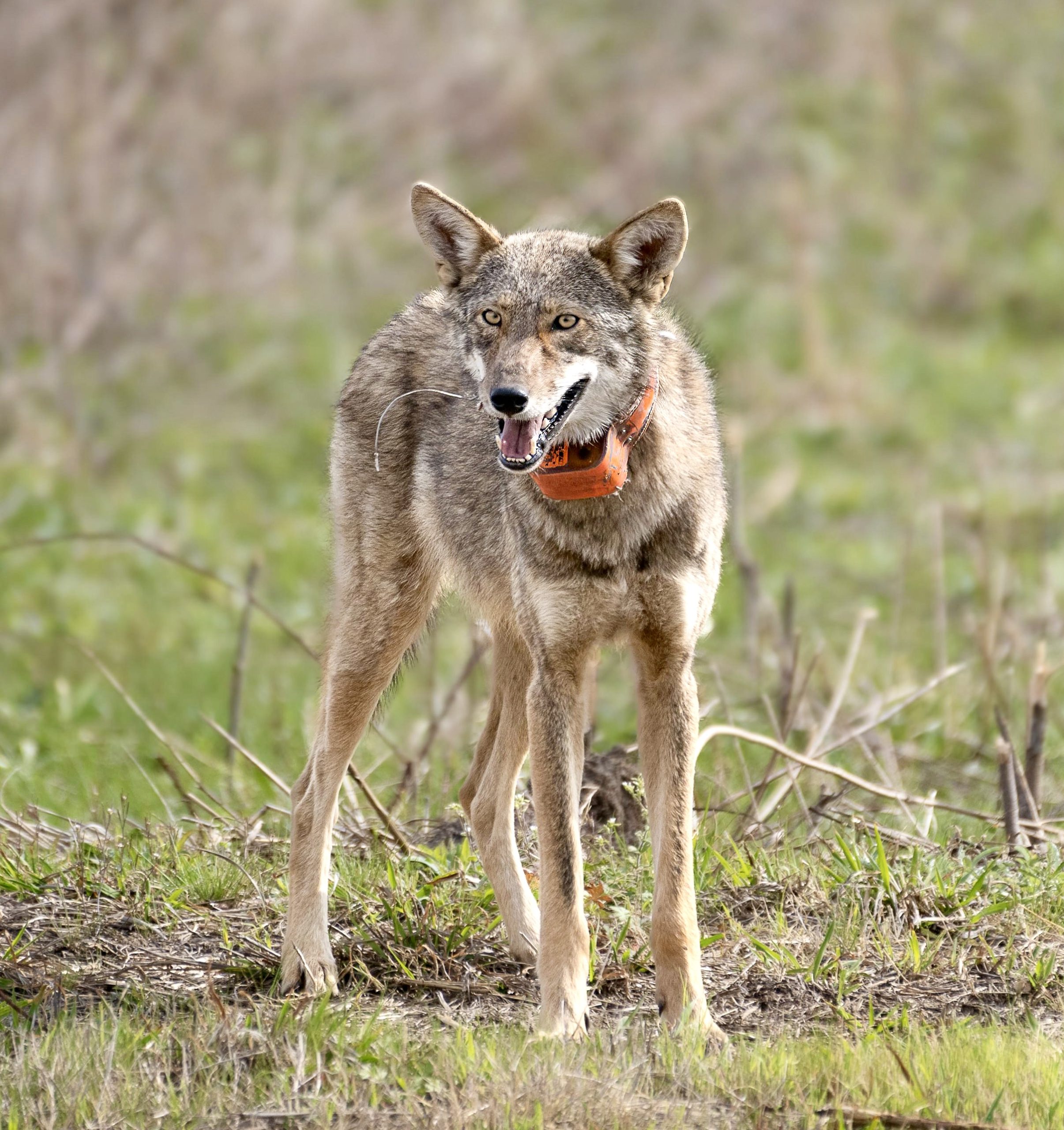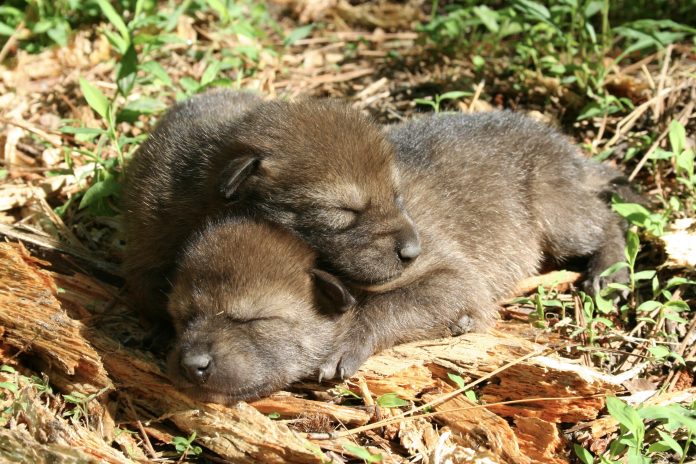A pair of red wolf pups that are part of the Red Wolf Recovery Program. Photo by: Ryan Nordsven/ USFWS
We are deeply saddened to report the death of five critically endangered red wolf pups, who tragically passed away after their father was struck by a vehicle in their last remaining refuge in eastern North Carolina.
“The tragic deaths of these five pups might have been prevented if we had wildlife crossings in red wolf country,” said Will Harlan, a senior scientist at the Center for Biological Diversity. “It’s shocking to see how a single vehicle collision can have ripple effects across the critically endangered red wolf population. Wildlife crossings can protect both people and red wolves from extinction, but we need to build them before it’s too late.”
This past spring, a 2-year-old female red wolf named Chance (designated 2413F by the U.S. Fish and Wildlife Service) gave birth to five pups with her mate, 2444M. Tragically, the father was struck and killed by a vehicle shortly after the pups were born. In the past 14 months, five other red wolves have also been killed by vehicles in the area.
Red wolves are monogamous and mate for life, with both parents sharing the responsibility of raising their young. As a first-time mother left to care for the pups alone, Chance was likely unable to provide sufficient food and care, leading to the loss of the entire litter.
Red wolves are critically endangered, with fewer than 20 individuals remaining in the wild, making them the most endangered wolf species on the planet. Native to the southeastern U.S., they were once widespread but now survive only in North Carolina’s Alligator River National Wildlife Refuge due to intensive predator control programs and loss of habitat. Vehicle collisions, especially along Highway 64, have become a leading cause of death. Conservation efforts, including captive breeding and reintroduction programs, continue, but red wolves face significant challenges to their survival.




